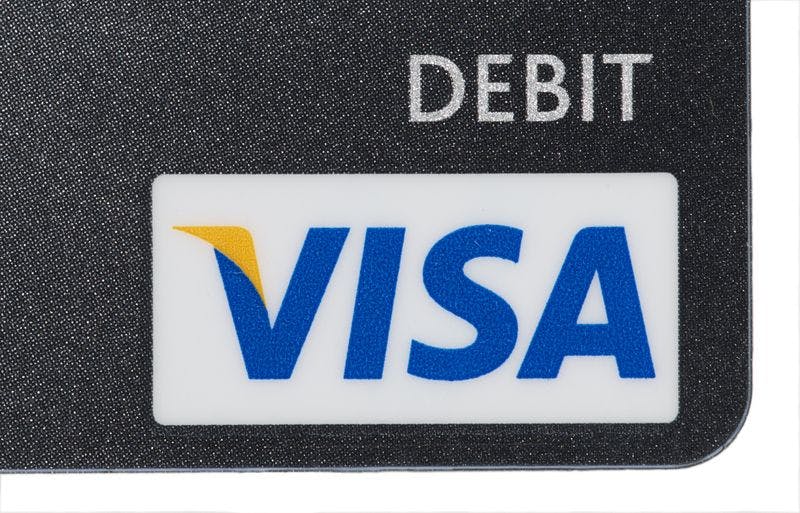Updated July 8, 2025
Visa high-risk merchants are business types that take on added liability from the card brand's perspective. For example, companies that offer subscription billing, international payments, or unique products produce a heightened risk to credit card transactions. Visa's goal is to ensure customers continue to trust credit cards, and as such, they have security standards when it comes to riskier merchants.
Visa Regulations For High-Risk Industries
In this article, we delve into the landscape of high-risk industries, shed light on Visa's stance, and uncover alternative pathways for merchants in these sectors. Businesses in the Adult space, selling CBD, or offering new health guidance with the latest nutraceuticals are all considered high-risk.
When it comes to payment processing, the goal is to find a bank that supports your products. As such, you'll discover there are companies like Zen Payments that make custom solutions so you have the capability to accept Visa, Mastercard, or even crypto payments.
Understanding High-Risk Merchants
High-risk merchants operate in industries subject to increased regulatory scrutiny, higher chargeback rates, and a greater risk of fraudulent activities. These industries include online gambling, adult entertainment, CBD products, and others that are considered higher risk. Due to these risks, traditional payment processors may exercise caution when serving merchants in these industries, leading high-risk merchants to seek specialized payment processing solutions tailored to their needs.

High-Risk Merchants in the Visa Payment System
Visa maintains strict guidelines and policies to ensure compliance, security, and risk mitigation when working with high-risk merchants. While Visa remains open to collaboration across industries, it prioritizes protecting its network, consumers, and financial stability. Their objective is to strike a balance between supporting businesses and managing the potential risks associated with high-risk sectors.
What is the Visa Integrity Risk Program (VIRP)?
In April of 2024, the Visa Integrity Risk Program went into effect, replacing the Visa Global Brand Protection Program. This new program is intended to crack down on bad actors in high-risk industries in an attempt to prevent illegal transactions and merchant effected fraudulent transactions that exceed the minimum standard. Visa intends to better control high-risk merchants and weed out those using deceptive marketing practices. They hope this will allow them to prevent illegal transactions in the Visa Payment System. Unfortunately, it will also make things tougher on high-integrity risk merchants as well.
How Will This Impact High-Integrity Risk Merchants?
The VIRP categorizes high-risk merchants by placing them into three tiers.
VIRP Tier One Businesses
Those in the first Tier will face the most scrutiny. These businesses include
- Online gambling
- CBD
- Vaping
- Pharmaceuticals
- Online dating and escort services
- Adult content
VIRP Tier Two Businesses
- Games of skill
- Cryptocurrency merchants
- Cyberlockers
VIRP Tier Three Businesses
- Outbound telemarketing
- Tobacco sales
- Financial trading platforms
- Subscription services or negative option billing
How is Visa's compliance program addressing the additional risk these types of companies pose? All Visa Integrity Risk Program (VIRP) companies must register as a company in one of these three tiers. They will also see their registration fees rise from $500 to $950.
Every new tier one and tier two high-risk merchant must now undergo Visa control assessments. During these assessments, Visa-designated agents will evaluate the business and any merchants they will acquire.
Key Considerations for High-Risk Visa Payment Processing
- Industry Compliance: High-risk merchants must comply with industry-specific regulations and standards. Obtaining the necessary licenses and certifications is essential for operating within these industries and building trust with customers and financial partners. A merchant that does is considered a high-integrity risk merchant.
- Risk Management: High-risk merchants face unique risks, including elevated chargeback rates and potential fraud. Implementing effective risk management strategies, such as robust fraud detection tools and stringent security measures, is crucial to protect their financial stability and reputation.
- Tailored Payment Processing Solutions: High-risk merchants require payment processing solutions that cater to their specific needs and challenges. These solutions may include features like customizable fraud filters, chargeback management tools, and advanced security protocols to ensure secure and reliable transactions.
- Security and Compliance: Security is a top priority for high-risk merchants due to the sensitive nature of their industries. Payment processors must prioritize robust security measures, including data encryption and secure transmission protocols, to safeguard customer data and maintain compliance with industry standards.
- Expertise and Support: Collaborating with payment processors experienced in serving merchants with higher risk can provide valuable expertise and support. These processors understand the unique challenges faced by high-risk industries and can offer tailored guidance and proactive assistance.
Visa High-Risk Processing
Visa, as a prominent company in the payment card industry, has specific guidelines to ensure compliance, security, and risk mitigation. High-risk merchants should consider industry compliance, effective risk management, tailored payment processing solutions, and partnerships with processors experienced in serving their industries. By navigating these considerations, high-risk businesses can confidently navigate the credit card payments landscape and pave the way for sustainable growth.






